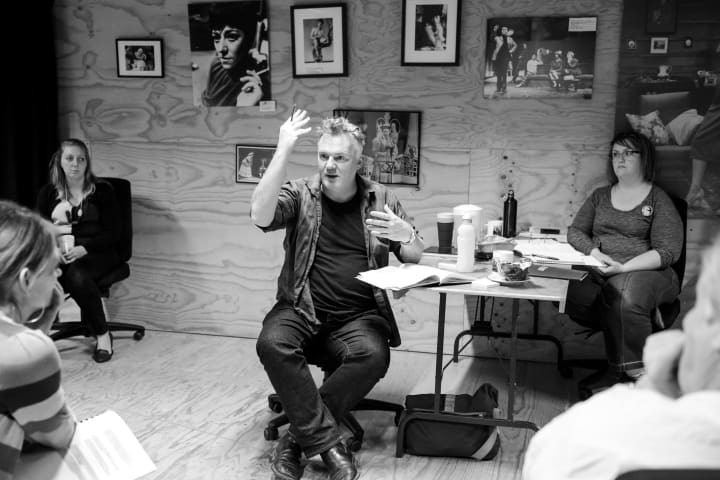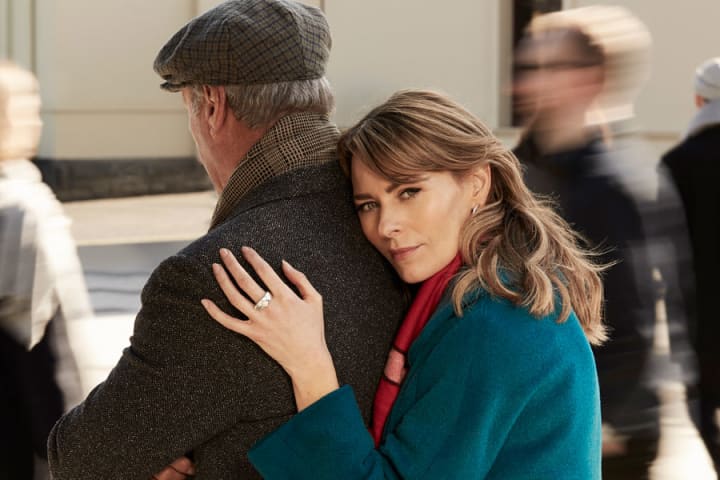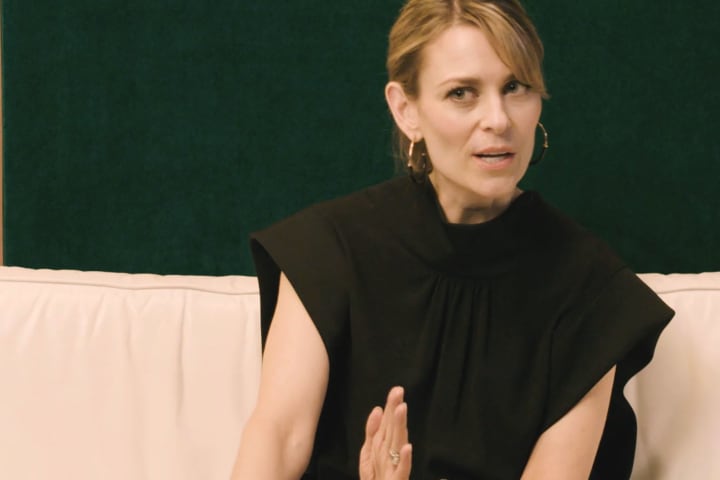By his mid-teens, Tom Healey felt sure he wanted to be a director. However, he received some good advice on the cusp of his adulthood from Sydney actor Kerry Walker who said, ‘If you want to be a director, train as an actor first.’ As a result, Healey finished high school and headed straight into the Victorian College of the Arts’ acting program.
When he graduated in 1989, he stumbled into the arms of Melbourne Theatre Company – then led by Roger Hodgman and headquartered at Ferrars St – with productions in repertory at the Russell Street Theatre. The ambition to become a director was put on hold while Healey performed in A Christmas Carol alongside Frank Gallacher, and On Our Selection alongside Helen Morse. He quickly discovered that acting was an enormous amount of fun, and so didn’t feel quite ready to don the director cap just yet.
Healey’s love for the dark intimacy of theatre came much earlier in life, at age 12, when he played one of the little boy fairies in a production of A Midsummer Night’s Dream. The experience hooked him instantly. ‘I found the whole thing completely intoxicating, from the word go. I remember the smell distinctly. To this day, I love the smell of the theatre.’
In 1991, Healey decided it was high time he put on his own show – as a director – and the result exceeded all his expectations. ‘The production was enormously successful,’ he says matter-of-factly. ‘It was called The Normal Heart and it was about HIV/AIDS…Of course, I thought, “well this is going to be my extraordinary career”, not counting for the fact that the subject matter might have had something to do with the show’s success!’ The young director got his comeuppance soon after the play closed, when the reality of life as a living artist kicked in. ‘It was a very lucky first go,’ he reflects. ‘I’ve lived my entire life as an artist, and – even though the money side isn’t great – almost everything else is good. Being an artist is very freeing.’
Healey was attracted to the play Heisenberg by its overarching theme of possibility. ‘I think Stephens is writing about the possibility of transformation in ourselves and in the world, and the way we perceive things…The idea that if we are open to change, our lives will not only alter but could improve vastly.’
Through his own experiences suffering with anxiety and depression, Healey recognises that many mental health problems create a feeling of imprisonment. ‘It can feel like it’s never going to change. And on those days where you feel like everything could change, you suddenly feel optimistic.’ There’s a lightness and polarity at the centre of Heisenberg, Healey states. If we’re brave enough to take risks, the array of possibilities in front of us and the rewards that they offer are immeasurable.
The principle of uncertainty or change is very much rooted in acting training, Healey explains. The idea that anything could happen, at any moment; every rehearsal and every performance is different. ‘At an atomic level, we are constantly shifting, changing and transforming. If we’re alive to that both on and off the stage, then our lives suddenly become kind of brilliant and extraordinary – full of possibility.’
Healey spends a large chunk of his time teaching now. He directed several Shakespeare productions as part of MTC’s education explorations in the early 2000s and is currently Head of Directing at Flinders Drama Centre. In Heisenberg, Healey’s leading lady is played by his long-time friend and collaborator, Kat Stewart. The two first crossed paths when Stewart appeared in one of Healey’s drama classes at the National Theatre Drama School.
In 2005, they did Neil LaBute’s play The Shape of Things at Red Stitch. Stewart collected a Green Room Award for her part as Evelyn, before the show went on a national tour in the following year. ‘[Stewart] rang me up one day,’ Healey says, ‘And she said, “oh Tom, Tom, Tom, oh god, I can’t do the tour.” And I of course was like, “What?” Because it was a big deal, it was a national tour. And she said, “I’ve been offered this television job and I don’t think I can say no.” And I said, “well what is it?” and when she said the part was playing Roberta Williams, I said, “You have to take it.” Thank god we both recognised the importance of that role. Watching her career soar from that point has just been incredible.’
Reconnecting with Stewart, and working with Peter Kowitz – an actor he has long admired – has been a dream job, he says. It’s a play that reminds us nothing is permanent; everything can change in an instant, and more often than not, this is a good thing. ‘It’s life-affirming theatre,’ he continues, ‘But it’s important that the audience make up their own minds about the play. Everyone will have a different perspective.’
Published on 29 May 2019




